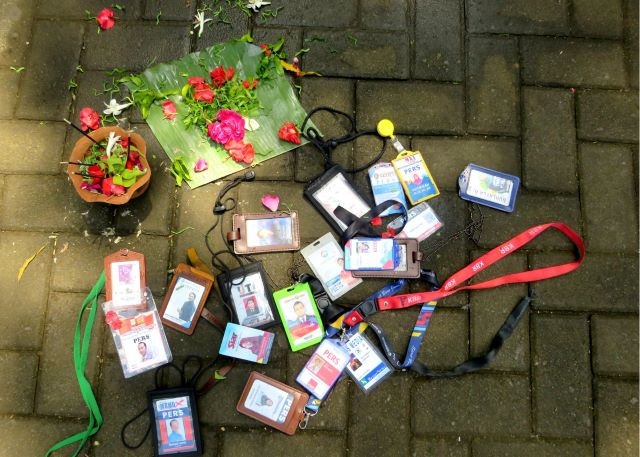A better way to manage differences
I recently attended a workshop on managing cultural diversity in the business world - a topic that has gained more and more popularity among expatriates and other international business practitioners
Change Size

I
recently attended a workshop on managing cultural diversity in the business world - a topic that has gained more and more popularity among expatriates and other international business practitioners.
However, the overall content was a bit disappointing, as the training focused only on somewhat superficial aspects of culture - such as customs, dances, languages, habits and some other easily observable objects and Indonesian cultural behaviors.
The presenter also listed differences in physical and habitual characteristics among Indonesian cultures, such as the calm Javanese nature, the open and blunt Bataks and the unusual funeral ceremonies of the Torajas.
Fons Trompenaars et al. (2000) suggests that to be able to effectively manage the multicultural business world, understanding culture must not be limited to the physical and habitual domains.
We have to delve into the inner layers of culture, namely beliefs, norms, values and basic assumptions that are held by a certain group of people. The understanding of beliefs, values and assumptions is critical, as these are the determining elements of a culture that influence people in their day-to-day decision making and problem solving. In other words, we have to understand the "why" of human behavior in a certain culture rather than the "what" characteristic of the behavior.
Many people, for instance, think that Javanese are not proactive and are slower in making decisions than, say, Americans or the English, who tend to be forthright and decisive. If not carefully studied, people may negatively perceive this type of behavior. But why do the Javanese behave this way?
Looking at a deeper layer of Javanese culture will help us understand the Javanese system of values that places self-control and contemplation as the basic requirements of maturity. For Javanese, people who express their emotions instantly are considered superficial or immature. Understanding the values behind a certain behavior thus draws a different conclusion about the Javanese.
Another example is the attitude toward contracts or regulations. On many occasions, Indonesians and people in various parts of Asia are considered a little bit ignorant of contract and regulations. Yes, indeed, I have made a small survey, and found out that only 45 percent of employees in my company really read the details of the terms of conditions stipulated in their job contract before signing it. Why do they behave this way?
In fact, we find out that most Asian cultures believe the relationship with other people is more important than the articles in a contract. This perspective is also true when talking about a job contract. They expect that a contract is a mere symbol of a mutual relationship between a superior and subordinate. "Because you are my boss, I trust that the terms and conditions you have drafted in the contract are in the best interests of our relationship," they believe. That way, they never imagine their bosses could cheat them.
Problems often arise when two people of different cultures try to solve a problem using different perspectives, with different values and assumptions in their minds. For a Bugisnese, for example, work is a social status, while for most Americans it is about a professional service given because you have signed a work contract.
That way, Bugisnese may see the termination of employment as indignation of the community, while an American will understand it within a framework of "normal" career dynamics at work. No wonder, when you terminate such a social-status - centered type of employee, it can be considered as an assault on self esteem and the whole family or even community will run after you.
How can we solve a problem arising from cultural differences, by compromise or by reconciliation? While compromise indicates sacrifice with one party or both feeling dissatisfied, reconciliation is a strategy for solution in which both parties feel that, while differences may still pertain, the point of view of differing parties is considered and are accommodated. It involves active endeavors in understanding other perspectives and it may also comprise an alternative or creative way to solve problems.
For example, if as an employer in the United States you can terminate or sack people with one day notice (as stated in the contract), in a community where a job is a social status, you need a little more effort to terminate an employee. As work involves a personal relationship, you are not expected to display disregard for your employees' self esteem by giving one-day notice, for instance.
At least, you have to make the process more personal, by giving a passionate explanation to the employee about the reasons behind your decision, or even to the family. I have even been involved in a process in which the term "termination" is replaced with "voluntary resignation" to accommodate an employee of high social status being socially harassed. That way, you still meet your own purpose, while being culturally sensitive.
From this discussion we can conclude that to be culturally competent, we need to recognize not only the observable behaviors and customs, but we have to capture the values, beliefs and assumptions that pertain to a certain culture, so that we can reconcile dilemmas arising from cultural barriers. And we expect, that any cross-cultural training in educational institutions and business entities will expose these inner layers of culture as well.









